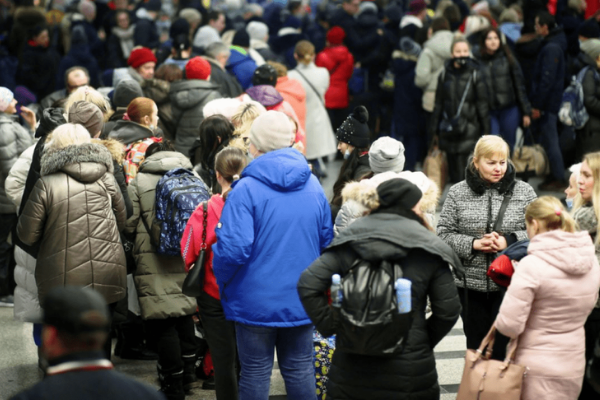In Brussels, the health authorities will start raising awareness about coronavirus vaccinations among Ukrainian refugees arriving in Belgium.
Some 30 'field agents' will be tasked with informing Ukrainians and raising awareness about Covid-19, Inge Neven of the Brussels health inspectorate said at a press briefing on Tuesday.
"They can also be used to inform and assist Ukrainians who arrive in Belgium," said Neven. The vaccination rate in Ukraine was quite low, as less than 35% of the country's population was fully vaccinated before the war started.
Belgium already has reception points at Palace 8 (where arriving Ukrainians have to register), operated at the Federal level. "We support them with information. Once the Ukrainians register in the municipality, it will become a regional matter and we can see how we can be of service there," said Neven. "But this is still under development."
Related News
- Unfair treatment: Different registration fees depending on commune for Ukraine refugees
- Belgian health care centres to offer psychosocial support to Ukrainian refugees
- Belgium boosts processing capacity for Ukraine refugees
The doctors who are working with the incoming people are very concerned with their overall health in general as well as their protection against Covid-19, microbiologist Emmanuel André said in an interview with De Morgen on Monday.
"This is being handled well in Belgium. We know that a large proportion of Ukrainians have not been vaccinated or have not received a booster," he said. "This also applies to the people who have recently arrived in Belgium."
Travelling in 'unfavourable conditions'
André also pointed out that many Ukrainians have travelled "in unfavourable conditions," such as overcrowded buses and trains. In Belgium, the way they queue up to be registered or are received in full hotels could also lead to increased transmission of the virus.
"I hope we can build enough trust among this population to push vaccination. Vaccine doubt is linked to distrust in doctors and governments," he said, stressing that they should be protected because they could get ill, not because they would be importing the virus, as the virus is already here.
"We have to think about their health. We must not give the impression that we are welcoming refugees with a needle in our hand. Our priority must be to receive them in a healthy environment," said André. "That will prevent many infections. The second step is to ensure that they have quick access to care, including access to information on vaccines and testing. The two steps are crucial."

